Salesforce Sales Cloud CRM review
Sales Cloud is one of a range of CRM apps offered by Salesforce. The Sales Cloud CRM app primarily focuses on sales management and automation, allowing sales teams and management to track sales processes, tasks, and data. In this Salesforce Sales Cloud CRM review, you’ll learn about the features of the app, how it measures up to its competitors, and whether it’s the best CRM software for your team.
Salesforce Sales Cloud CRM review: Snapshot
There’s a reason Salesforce is considered the original CRM and has continued to dominate the market since its inception. We were super impressed with the breadth of functionality available in Sales Cloud, specifically the advanced lead scoring capabilities and the range of reporting and dashboard customization.
Although Salesforce Sales Cloud pricing starts at just $25 per month, be mindful that functionality is fairly limited under this pricing tier. Even at the upper end of Sales Cloud pricing, mature sales teams may need to purchase other Salesforce products and add-ons to mine the full potential of Sales Cloud’s capabilities.
If you’re leading a large sales team and want to keep everything centralized, Salesforce is an ideal choice. Smaller teams with less complex needs, however, may prefer options like HubSpot CRM or Zoho CRM.
Score: 4.5/5
Read on for our full and detailed review.
Salesforce Sales Cloud CRM: Competitors
| Salesforce Sales Cloud | HubSpot Sales Hub | Zoho CRM Plus | |
|---|---|---|---|
| Score | 4.5/5 | 4/5 | 3.5/5 |
| Pros | - Most robust and in-depth functionality in comparison to competitors - Advanced report and dashboard building | - Easy set-up and simple user interfaces - Vast integration options - Reasonable pricing makes it accessible for teams of all sizes | - Exceptional mobile app experience - Access to almost all features at lower pricing tiers - Very reasonably priced overall |
| Cons | - Too expensive and complex for small businesses Steep learning curve for set-up and configuration - Requires other - Salesforce products to unlocks its true potential | - Limited customization options in comparison to competitors - Reporting and dashboard creation is very limited, particularly on lower pricing tiers | - Limited integration functionality - Clumsier user interface - Customer support is difficult to obtain |
| Verdict | Salesforce Sales Cloud is one of the most comprehensive CRMs on the market. It’s expensive and requires some expertise when it comes to configuration, so it’s best suited for high-growth or enterprise-level organizations. | HubSpot’s UI and simple navigation make it accessible for users of all tech knowledge levels. It’s great for small- to medium-sized businesses, but more advanced sales organizations may find its functionality and reporting capabilities too limited. | Zoho provides a high level of customization when it comes to the interface. It’s a reasonably priced option considering the range of functionality. One area in which it falls short compared to competitors is the number of integrations available. |
| View deals | Visit site | Visit site | Visit site |
Salesforce Sales Cloud CRM: Key features
Salesforce Sales Cloud provides some robust features to enable sales teams to manage all their contacts and nurture leads as effectively as possible.
Contact management
Under the Contacts view, you can see all the contact information, related opportunities, and accounts, notes, files, and activity for that contact. Once you create a lead record, you can monitor the status of the lead in relation to your sales pipeline and create tasks to continue the nurturing process. This complete overview into the entire history of a contact or lead provides your sales team with all the information they need in one location.
Lead Scoring
Within contact and lead records, team members can also create, monitor, and assign tasks. For example, you can schedule a call or automate an email send and create a task to follow up. But one of the most impressive lead management features of Salesforce Sales Cloud is lead scoring. Once activated, the Einstein.ai functionality begins gathering data on your activity and deals. Once it has gathered enough data, it can assign predictive scores to your leads. The scores ensure your sales team is spending their time with leads and opportunities that are most likely to close.
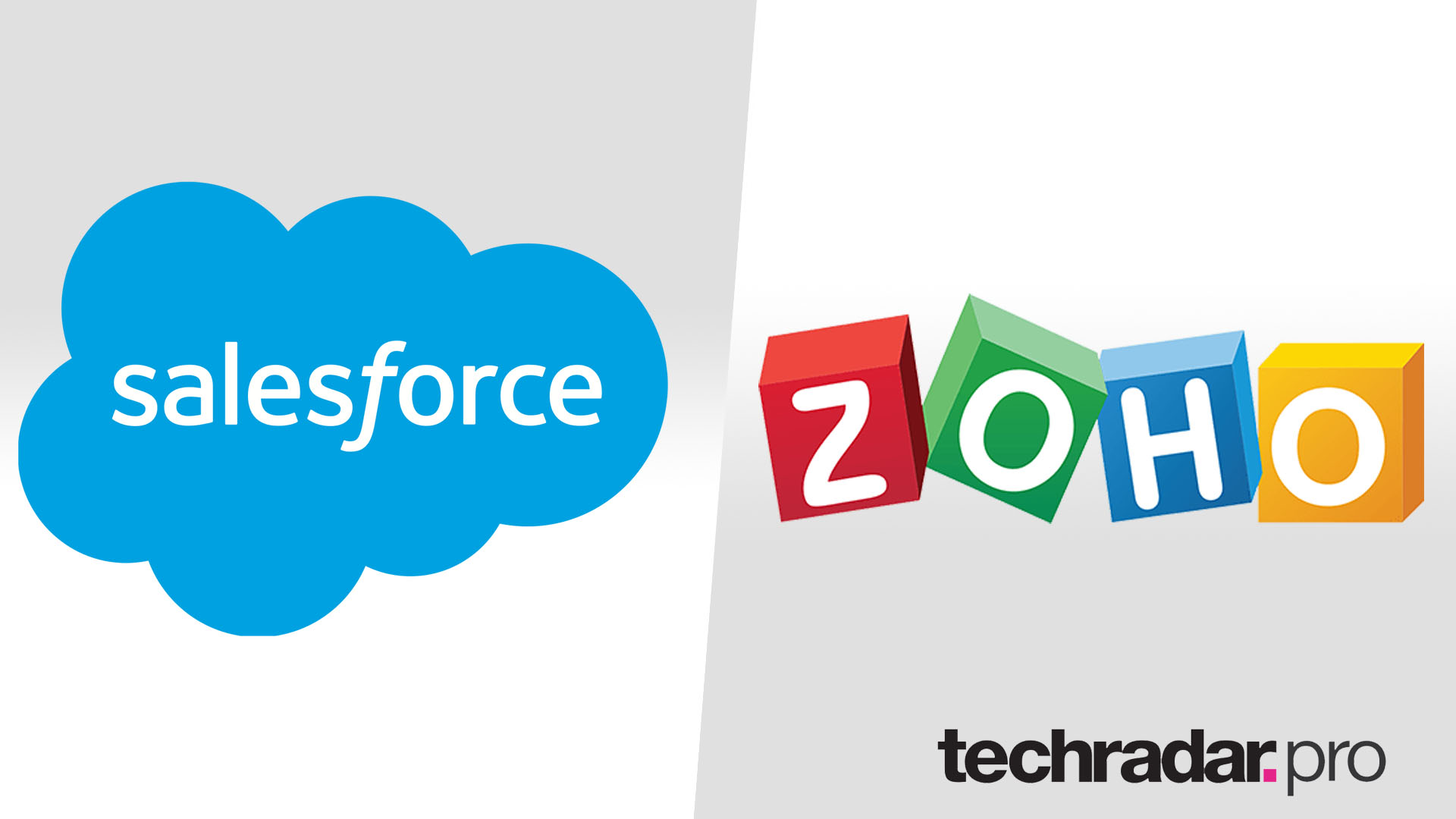
Learn about the best Customer Relationship Management systems on the market today and choose the right one for your business with our Best CRM software guide.
Opportunity management
Another core feature of Sales Cloud is the depth of opportunity management available in the platform. Within an Opportunity record, users can see the current opportunity stage within the sales cycle, related contacts, campaign influences, and the products and quotes provided with the opportunity. Sales Cloud also enables you to record essential data such as “Closed Lost Reason” so you can track performance and make informed decisions about your sales strategy.
Sales forecasting
With the level of data granularity gathered in Salesforce, it’s not surprising that Sales Cloud can automate highly detailed sales forecasting. Since almost every type of record in the app is customizable, you can also make sure that the forecasting is mapped to your existing business processes and sales forecasting techniques.
Although Salesforce is a powerful tool in the hands of an individual, it also provides plenty of opportunity for collaboration. Salesforce Chatter is a feature that enables users to ask questions, post comments, and upload documents within contact, lead, and opportunity records. Salesforce users can tag each other on Chatter posts to keep everyone in the loop.
Reporting dashboards and tools
The feature that really puts Salesforce Sales Cloud head and shoulders above its competitors is the reporting capabilities and the customization available for dashboards. You can create dashboards for all elements of your sales team, your pipeline, and your customer data for a quick real-time overview of performance.
The reports and dashboards are both easy to build using drag-and-drop elements, presenting the data in a visually pleasing way that’s easy to interpret at a glance.
Salesforce Sales Cloud: Key features and highlights
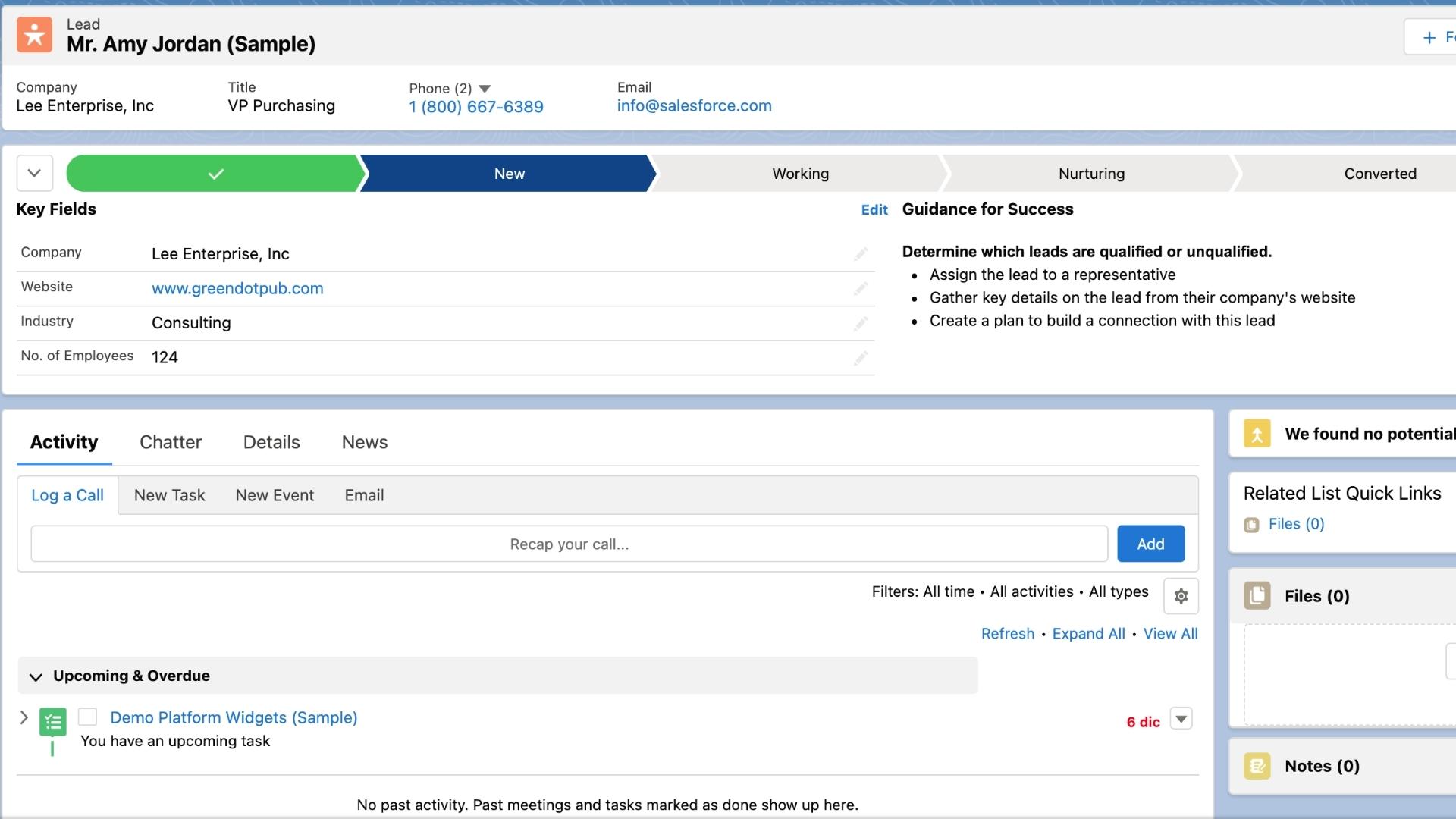
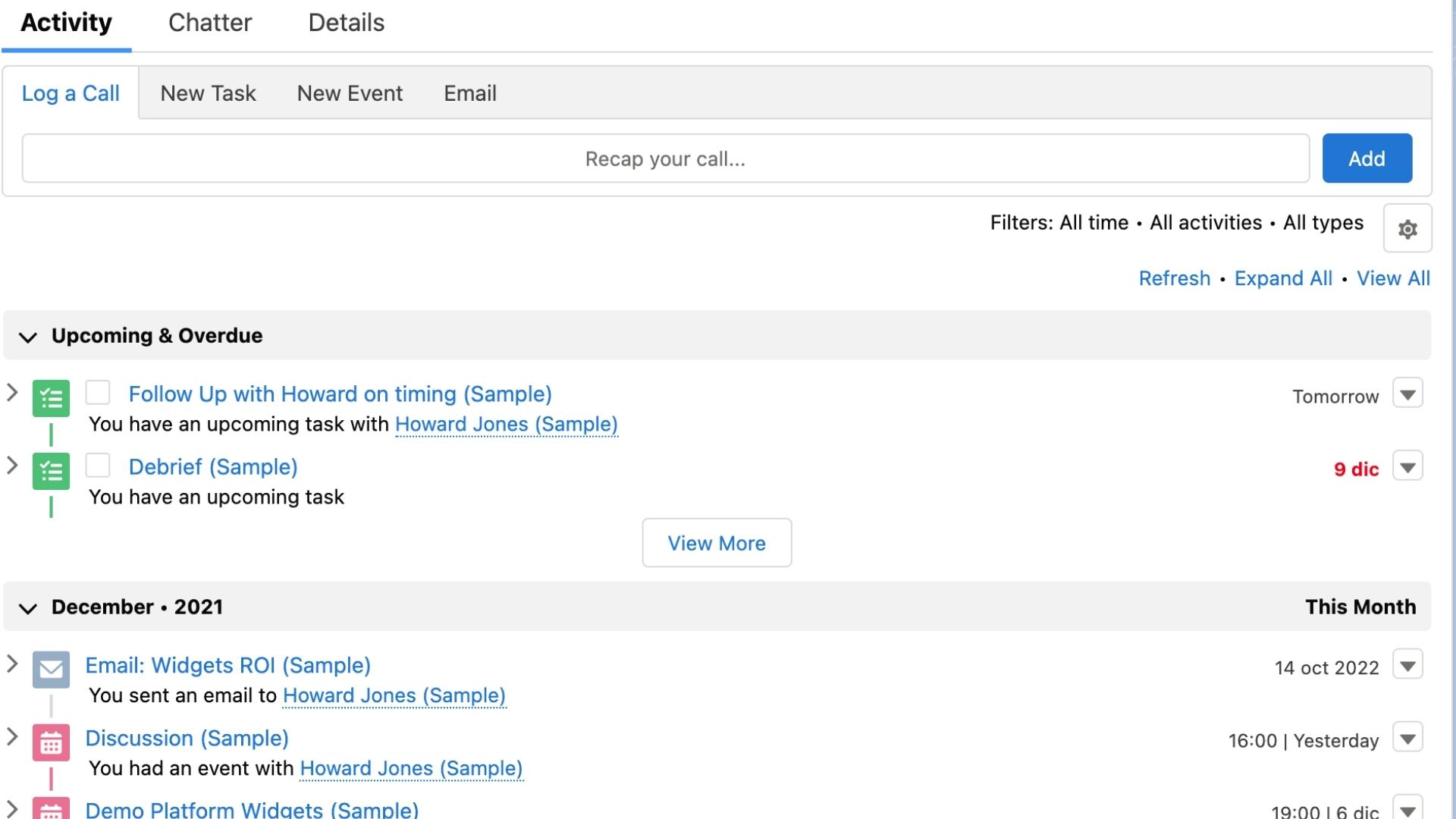
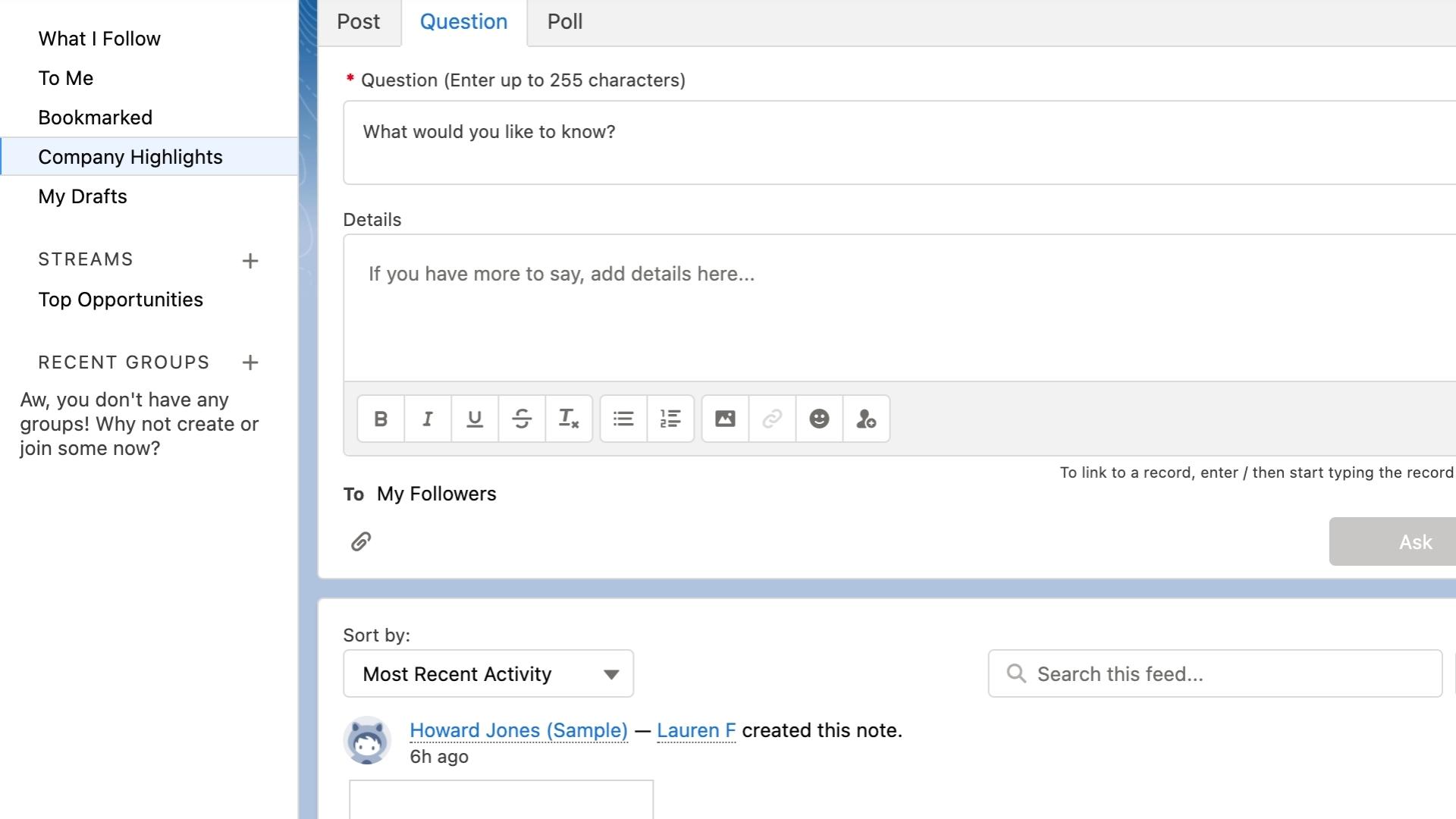
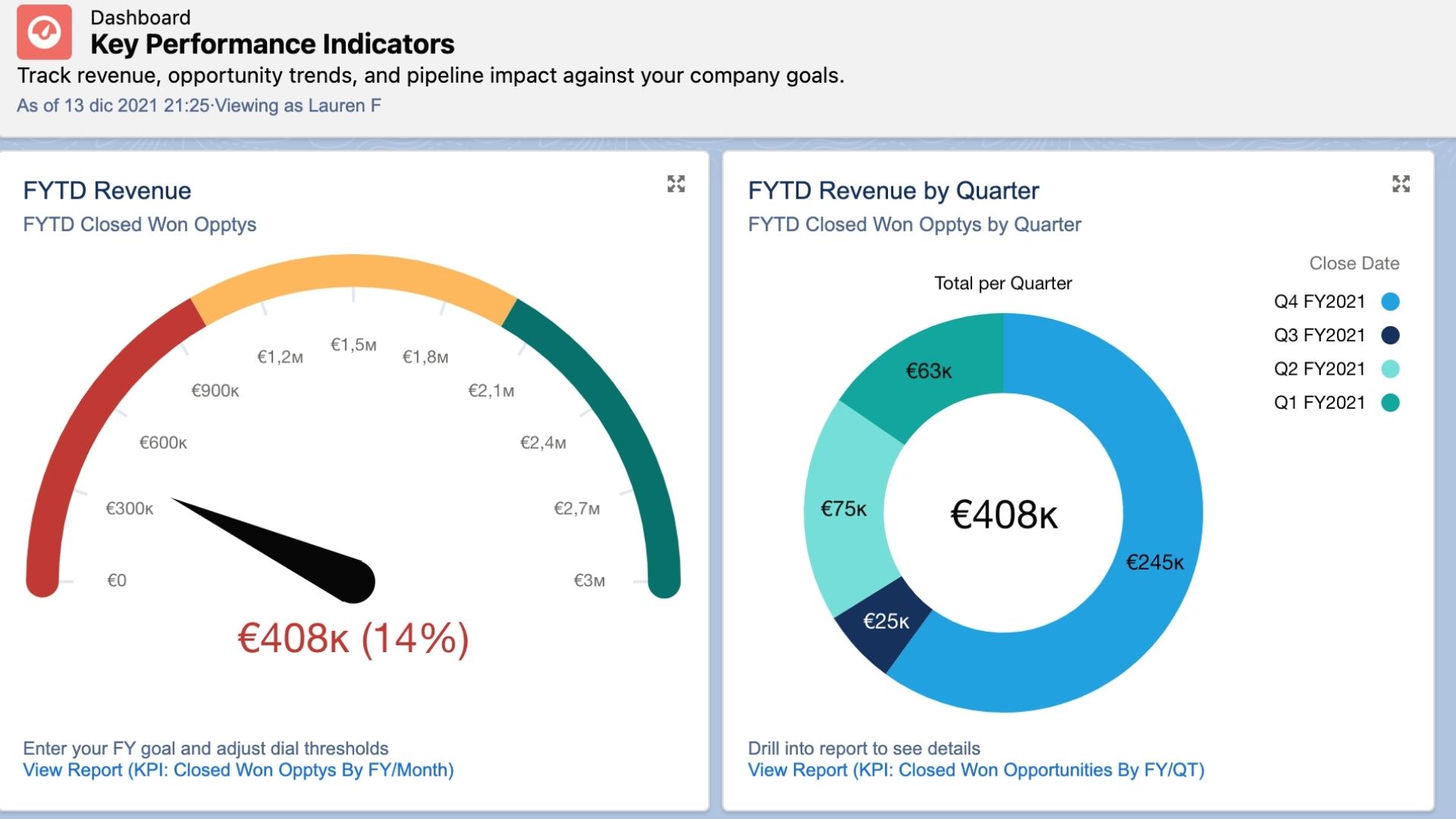
Salesforce Sales Cloud CRM: What’s new?
Slack integration
Most recently, in July 2021, Salesforce acquired communication platform, Slack. Together, the companies have plans in the pipeline to closely integrate the functionalities of both platforms to provide a 360-degree experience across team collaboration and customer management.
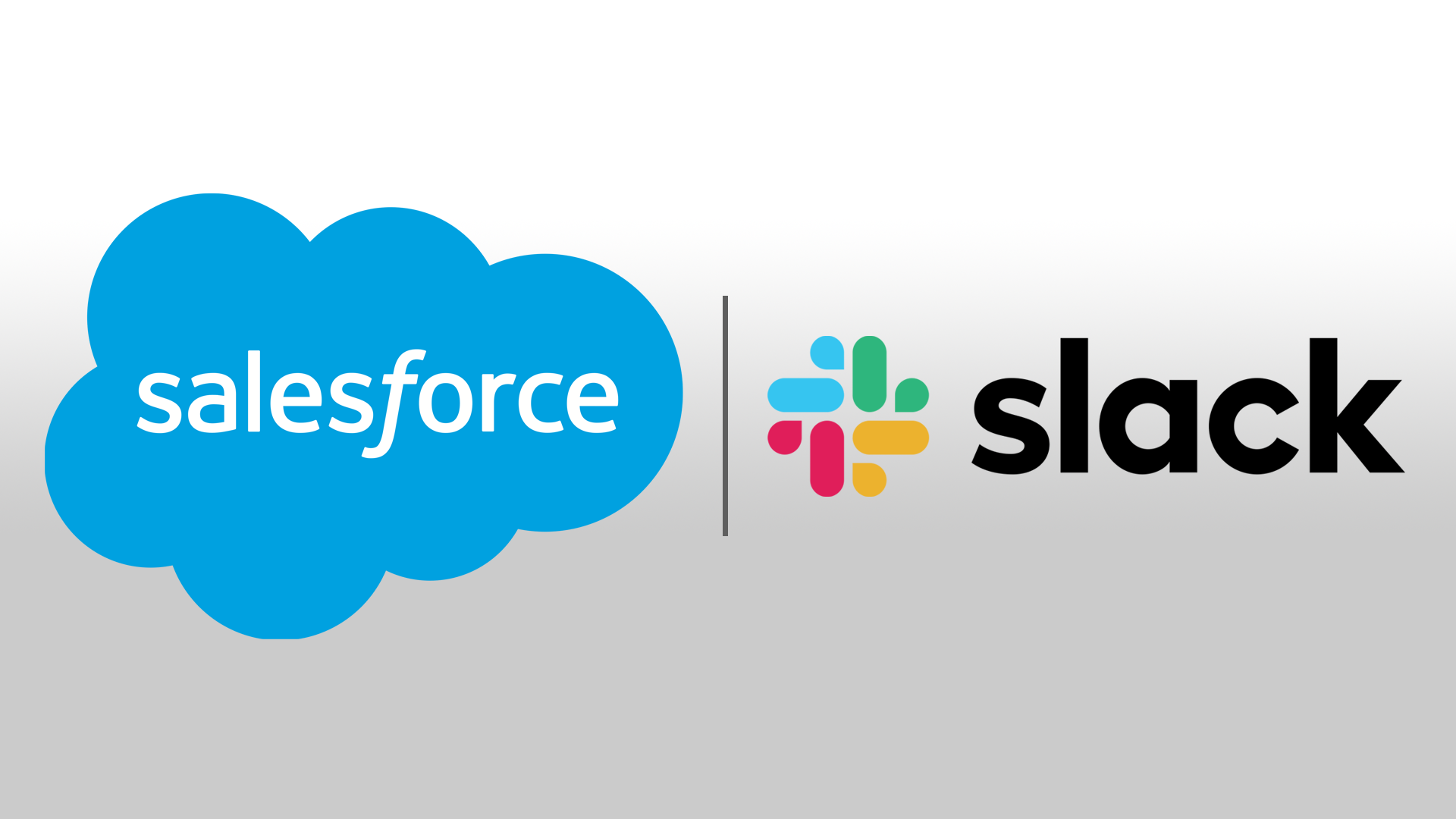
Software updates
Salesforce regularly updates product features, improving user experience and expanding functionality within the platform. The latest release in summer 2021 added better integration with Google, with users now having the ability, for example, to add Google Meet links to meeting invites within Salesforce. The Einstein lead scoring capability has also expanded to include lead segmentation so you can score leads separately depending on their lead source.
Salesforce Sales Cloud users can now also look forward to some exciting upcoming developments to round out the product experience and functionality. The Salesforce winter 2022 release includes updates such as more in-depth pipeline inspection, additional forecasting capabilities, and the ability to automatically match voice and video calls to opportunities through Einstein.
Salesforce Sales Cloud CRM: Pricing
There’s no getting away from the fact that Salesforce CRM packages are amongst the most expensive in the market. However, Salesforce also offers a lot of functionality in its lower-tier pricing plans in comparison to competitors such as HubSpot.
When it comes to Sales Cloud, Salesforce offers four different pricing tiers. At first glance, they may not seem overly expensive. But it's worth noting that, for mature sales teams and large enterprises, you will likely need to purchase additional Salesforce products and add-ons to reach the full potential the product can offer.
Although a Salesforce Essentials subscription can be paid monthly, all other plans are generally paid annually.
| Plan type/feature | Essentials | Professional | Enterprise | Unlimited |
|---|---|---|---|---|
| Cost per month | $25 | $75 | $150 | $300 |
| Cost per year | $300 | $900 | $1,800 | $3,600 |
| Account, contact, lead, and opportunity management | ✓ | ✓ | ✓ | ✓ |
| Email integration with Gmail or Outlook | ✓ | ✓ | ✓ | ✓ |
| Salesforce mobile app | ✓ | ✓ | ✓ | ✓ |
| Lead registration and rules-based lead scoring | X | ✓ | ✓ | ✓ |
| Collaborative forecasting | X | ✓ | ✓ | ✓ |
| Workflow and approval automation | X | X | ✓ | ✓ |
| 24/7 support | X | X | X | ✓ |
Testing Salesforce Sales Cloud CRM
The customization and set-up process is fairly complex, so we decided to look at the responsiveness of Salesforce’s customer support team.
We also looked at Sales Cloud’s downtime history as it’s likely that your sales reps will spend the majority of their day using Salesforce once it’s up and running. Significant downtime would therefore hamper their productivity.
How often does Salesforce Sales Cloud experience downtime?
Salesforce is a very reliable platform, although it did experience a very disruptive, service-wide outage in May 2021. Overall, however, users can expect very little downtime while using Salesforce Sales Cloud CRM. According to Status Gator, between July and November 2021, Salesforce only experienced a maximum of 49 minutes of downtime across all instances. The vast majority of these interruptions lasted only one minute, with many lasting less than a minute.
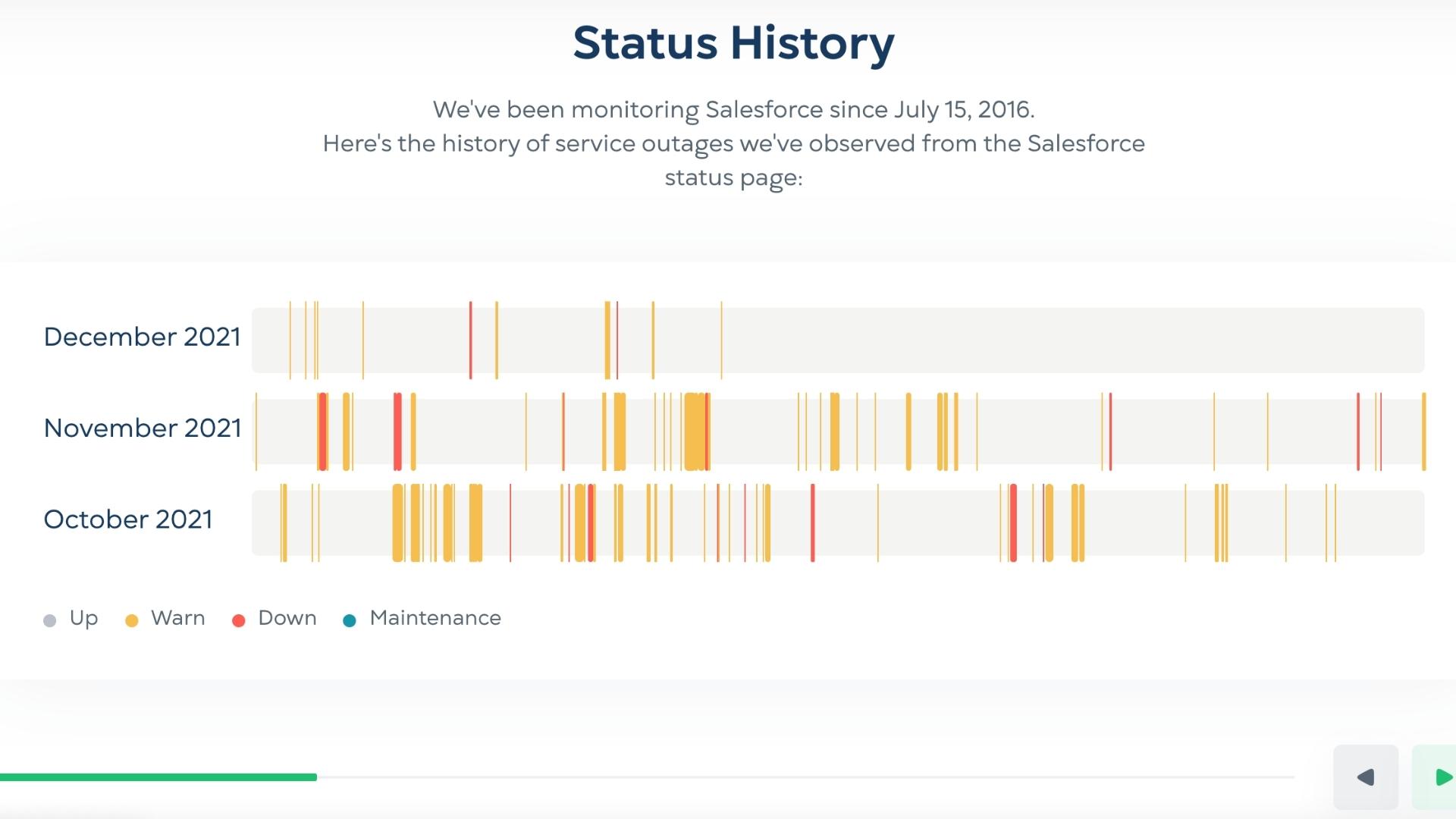
How responsive is Salesforce Sales Cloud customer service?
Salesforce doesn’t make it particularly easy to get in touch with its customer support team. First, you have to create a Trailhead (the Salesforce online training and resources hub) account separate to your Salesforce login credentials (although you can link the two afterward).
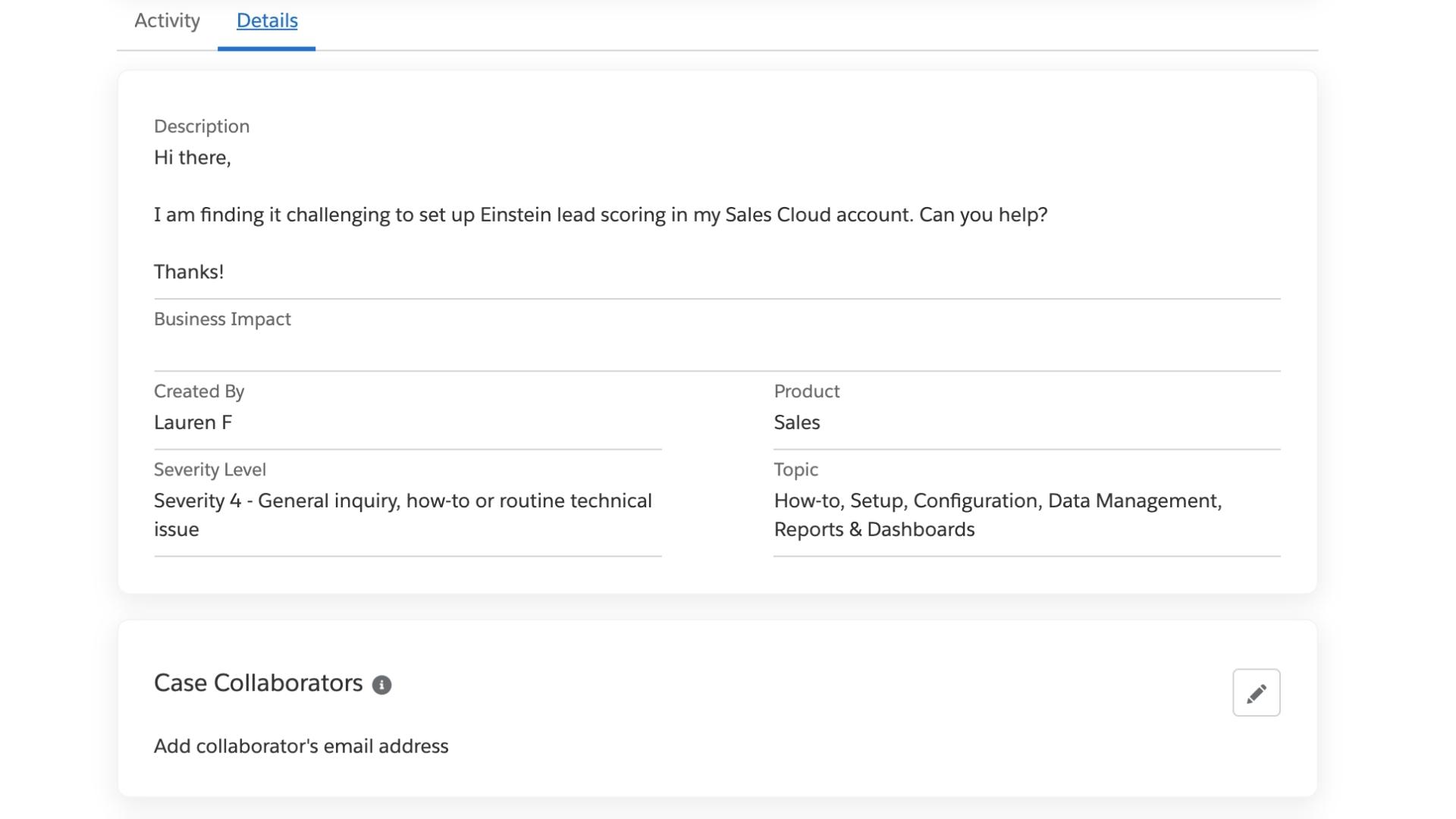
There is no live chat available, but you can submit a case by email. Salesforce prompts you to provide details and to select a severity level from a dropdown menu.
Users with Premier Support (which can be purchased as an add-on) can expect to receive a response within 1–8 hours. Standard users could be waiting for up to two days for a response.
Alternatives to Salesforce Sales Cloud CRM
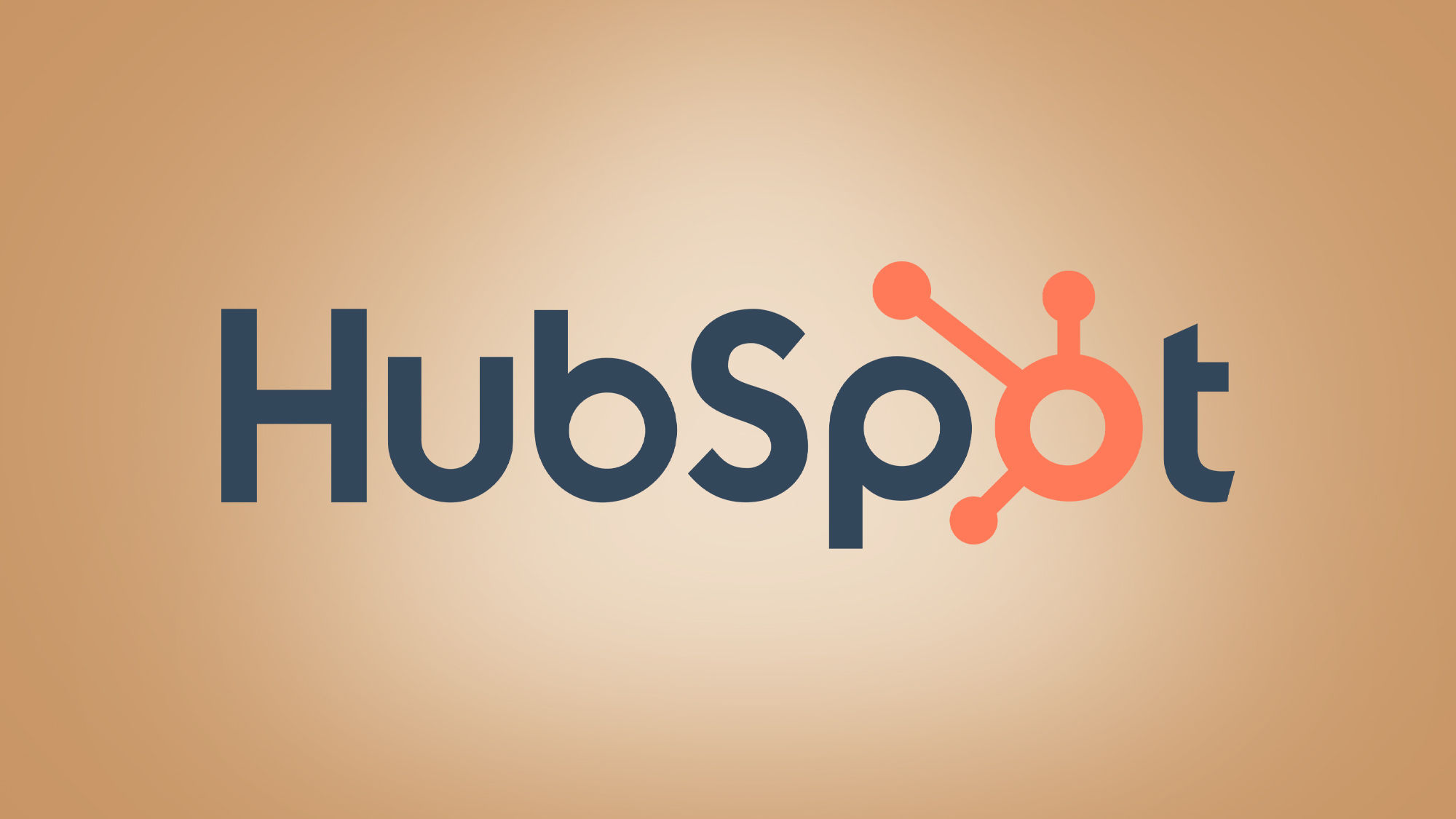
The CRM market is highly competitive and there are numerous alternatives to Salesforce. Two of the most popular are HubSpot Sales Hub and Zoho CRM.
HubSpot CRM is better known for its marketing automation functionalities. It doesn’t offer a high level of customization, but it’s easy to set up and has far superior customer support. However, complex sales organizations may not get all the functionality they need and Enterprise level pricing plans can end up on par with the cost of Salesforce for large teams. So HubSpot is best suited for small or medium-sized businesses.
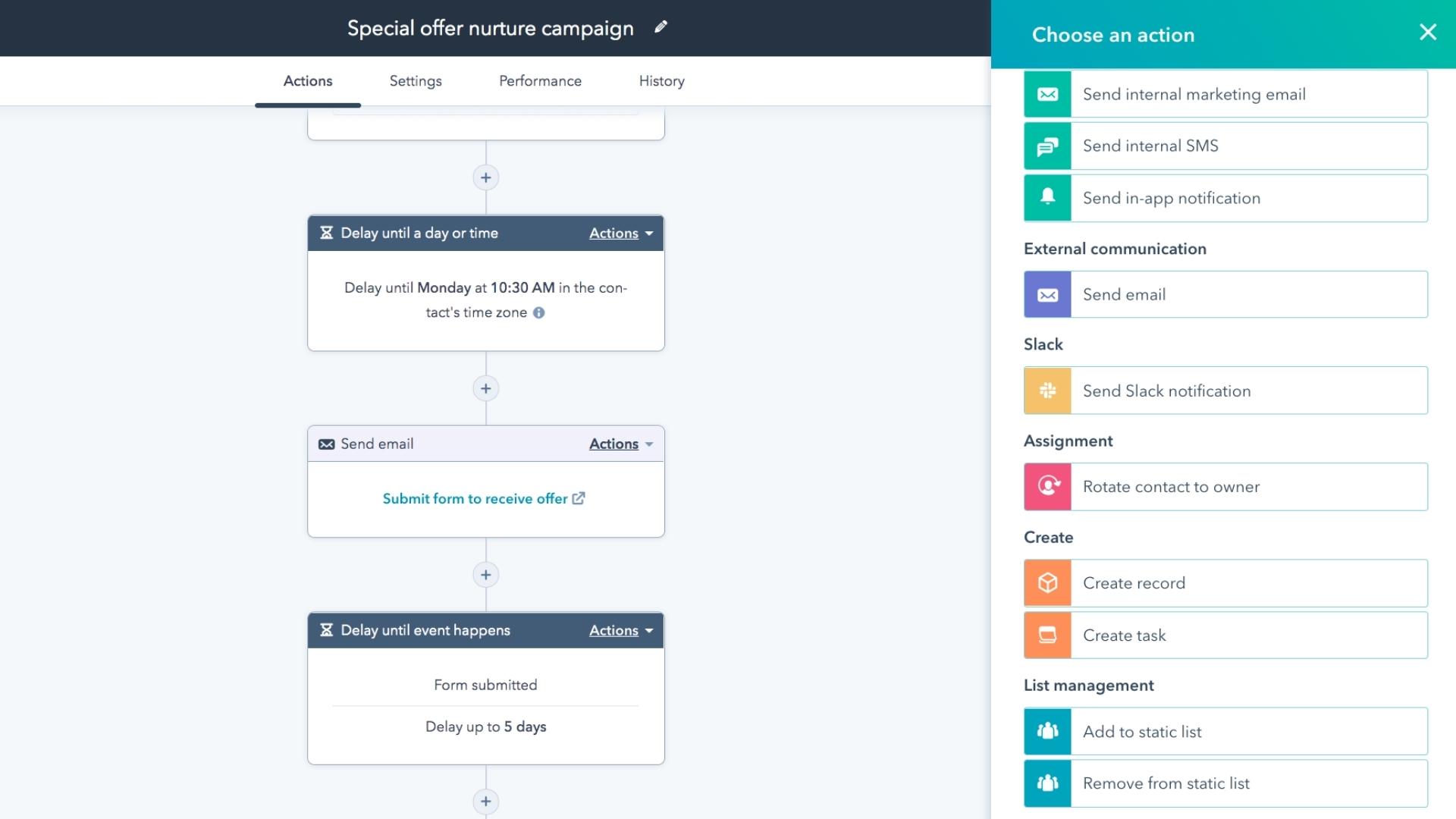
Zoho CRM, on the other hand, offers functionality in terms of managing a sales pipeline to rival Salesforce and at a much more affordable price. You can even use its Canvas function to completely customize the user interface. Where Zoho falls down, however, is in its much more limited range of integration options.
| Salesforce Sales Cloud | HubSpot | Zoho | |
|---|---|---|---|
| Lead scoring | Yes (with upgrade) | Yes | Yes |
| Pipeline analysis | Yes | No | No |
| Support | Knowledge base, email, and phone | Knowledge base, live chat, email, and phone | Knowledge base and email |
| Basic plan | $25/mo | $45/mo (covers two users) | $20/mo |
Salesforce Sales Cloud CRM: Final verdict
Salesforce Sales Cloud is an exceptionally robust CRM option and is ideal for medium-to-large organizations that want to get into the nitty-gritty of managing their sales operations, data, analytics, and forecasting in one place.
Getting your Salesforce account up and running may take some time, and will even require the help of an expert in the system, but its reliability as a cloud-based platform and the level of analysis to be gained from it make the effort well worth your while.
If multi-channel, highly responsive customer support is an important factor for you (and it might be when it comes to Salesforce set-up), Sales Cloud may not be the ideal choice. The response times are longer than those of competitors, and users have fewer options in how they contact the team.
Overall, though, you can’t beat Salesforce for its range of functionality and the level of insight you can gain from the reporting and dashboard features.
Further reading
For a more detailed comparison of the providers mentioned here, check out this article on Salesforce vs Zoho or this in-depth HubSpot CRM review. If you’d like to learn more about other products within the Salesforce suite, you might be interested in a review of Salesforce Service Cloud.
0 comments:
Post a Comment